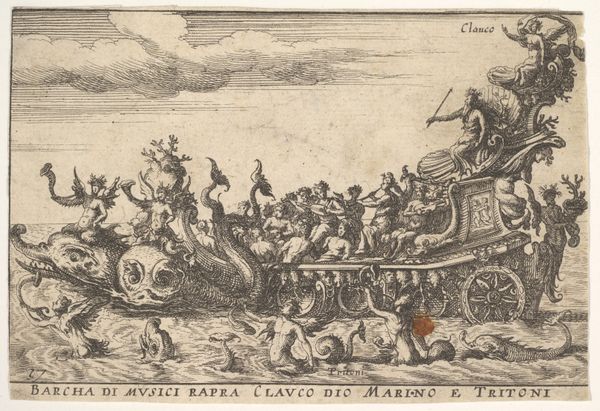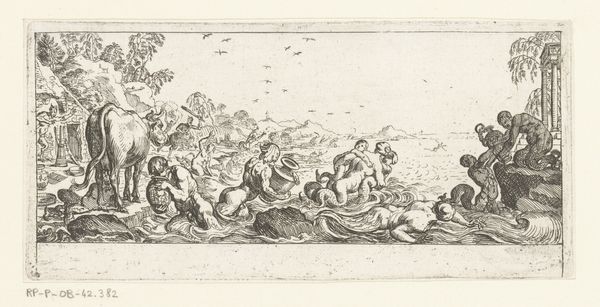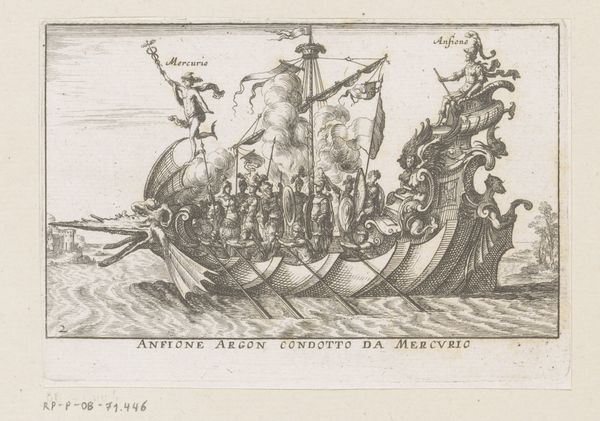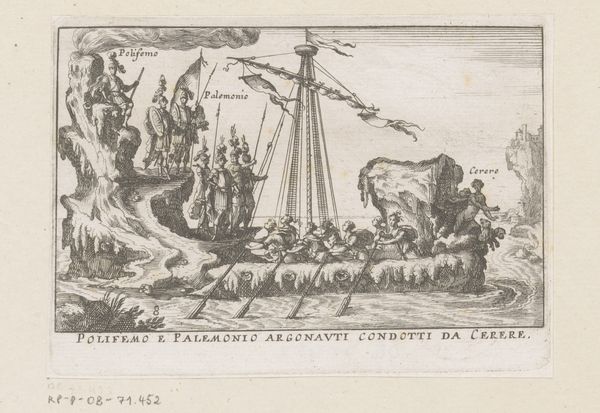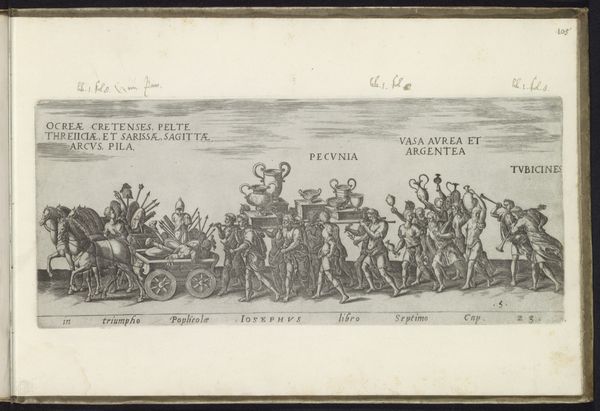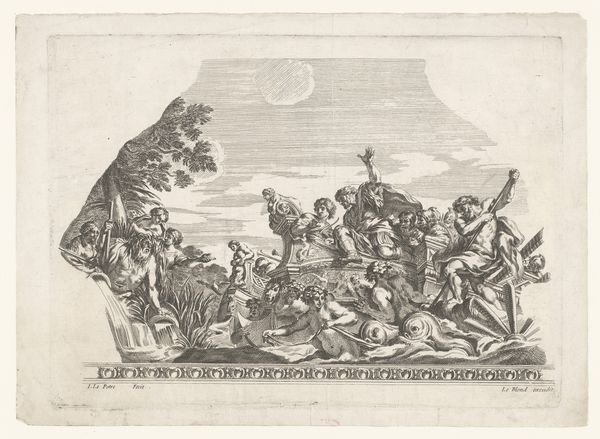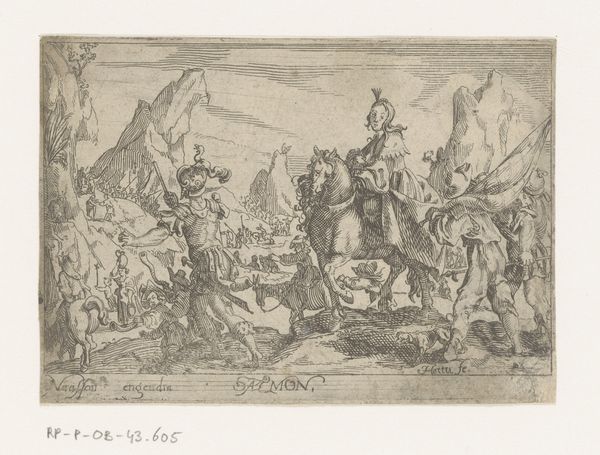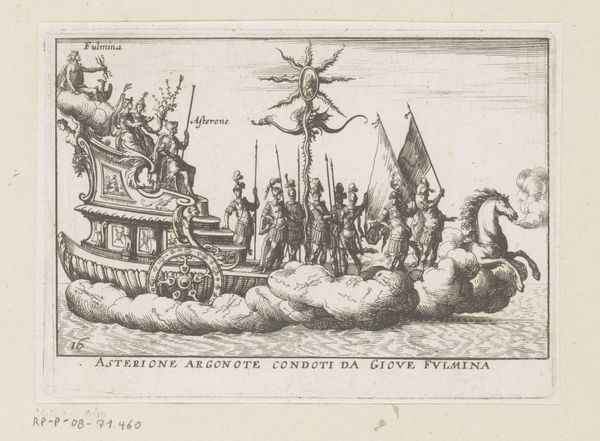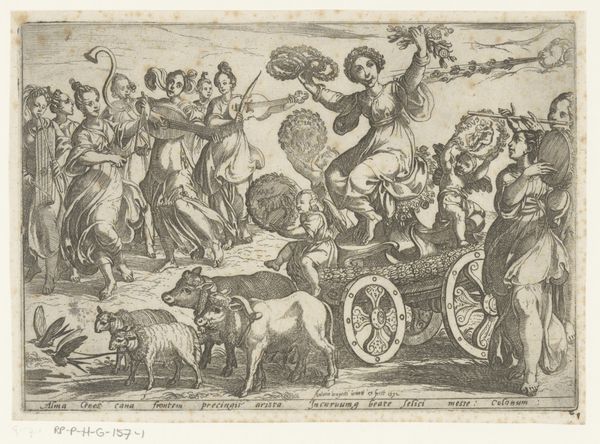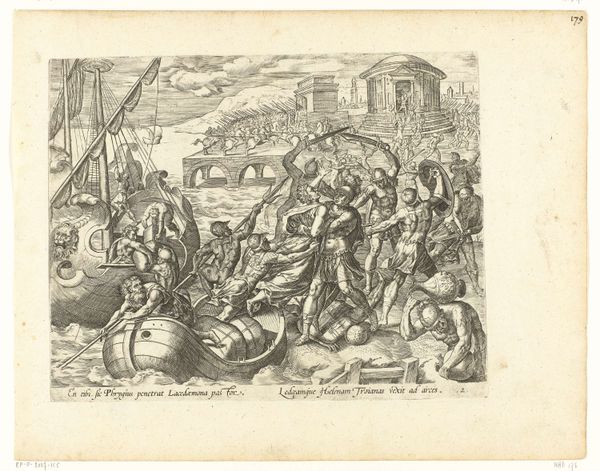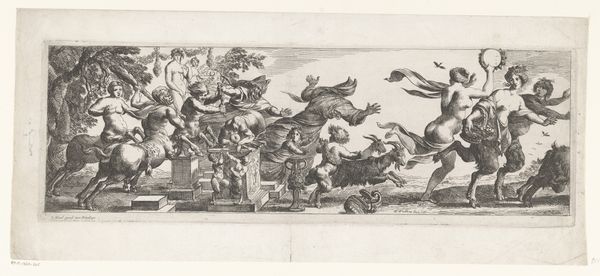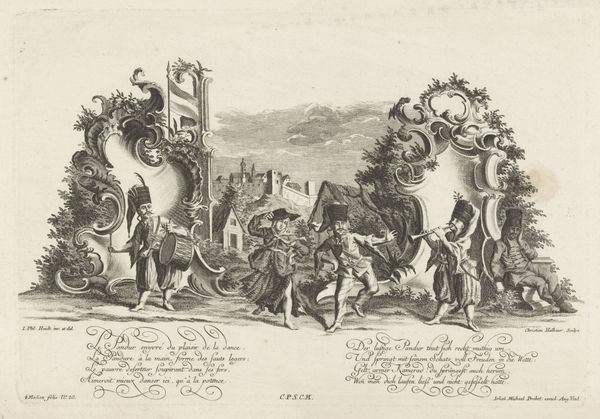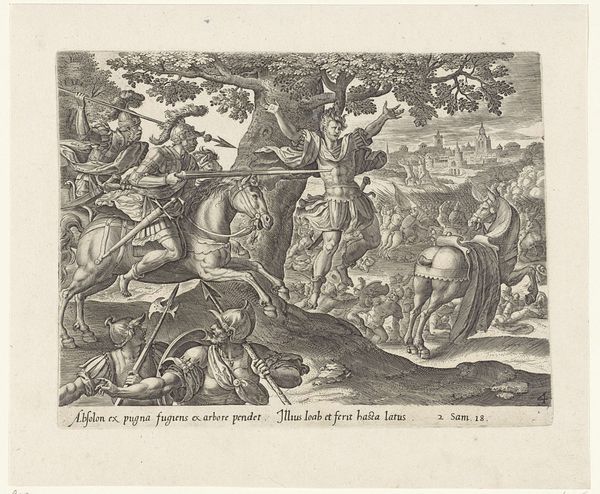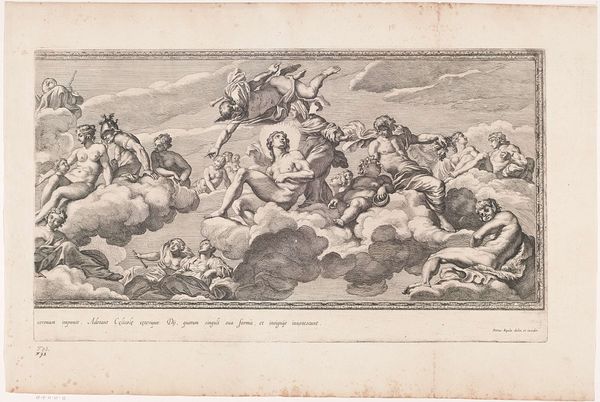
print, engraving
#
baroque
# print
#
old engraving style
#
figuration
#
history-painting
#
engraving
Dimensions: height 92 mm, width 127 mm
Copyright: Rijks Museum: Open Domain
Editor: This is "Ship with Musicians and Glaucus," an engraving from around 1635, currently held at the Rijksmuseum. The artist is unknown. It has such a celebratory, theatrical mood. All those figures crammed together, on what looks like a wheeled vessel in the sea. What can you tell me about this print? Curator: Let’s look at the production of this image as a commodity. Engravings like this weren't just art; they were mass-produced items circulating within a complex economic system. Who would buy this? What was its function? Was it collected, traded, used for education? We should ask what materials were involved in making this print, not only the paper and ink, but the engraver's tools. And let's think about the engraver's labor: the skill, training, and time required. Editor: So, thinking about its consumption...the figures and the mythological elements feel quite distant from daily life, right? Curator: Not necessarily. Baroque art often blended classical stories with contemporary life, using spectacle to communicate ideas to a broader audience. Perhaps the print alludes to civic celebrations involving seafaring, music and mythological re-enactments. Do you notice any figures whose posture suggests manual labor? That gives us another clue. We see music-making, implying collaborative skill and leisure made possible through labour. Editor: I didn't consider the socio-economic angle so closely! It reframes how I view this "history-painting." Curator: Exactly! It pushes us to question who gets represented in history, and how the labor of image production connects to that representation. Think about who this print was *for*, as well as who or what it depicts. Editor: This has given me a totally fresh view to consider similar prints moving forward. Thanks!
Comments
No comments
Be the first to comment and join the conversation on the ultimate creative platform.
